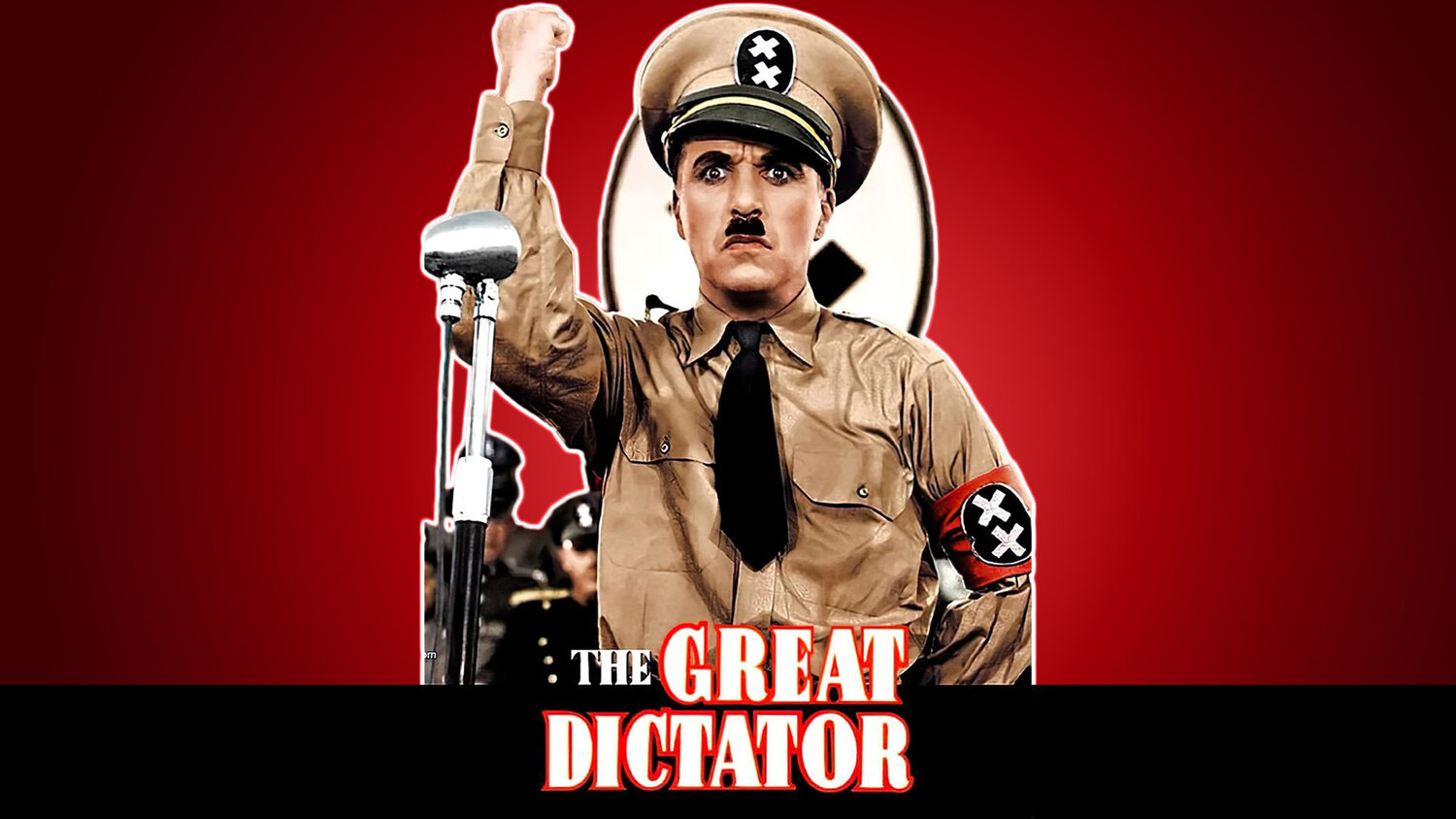
The Great Dictator is a groundbreaking film that was written, directed, and starred by the legendary Charlie Chaplin. Released in 1940, the movie defied societal norms and provided a unique perspective on the rising threat of fascism during World War II. As one of Chaplin’s most daring and controversial works, The Great Dictator used comedy to satirize Adolf Hitler and his regime, challenging the oppressive ideologies of the time. With its powerful and poignant message, the film remains a timeless classic that continues to captivate audiences to this day. In this article, we will uncover 43 fascinating facts about The Great Dictator, shedding light on its production, impact, and legacy in the realm of cinema.
Key Takeaways:
- The Great Dictator” was a groundbreaking film that boldly mocked Hitler and the Nazi regime, inspiring conversations about politics and the power of satire in shaping public opinion.
- Charlie Chaplin’s dual role in the film showcased his exceptional talent, marking a departure from silent comedy and leaving a lasting impact on the film industry and society.
The Great Dictator was Charlie Chaplin’s first talking film.
After gaining immense popularity in the era of silent films, Chaplin took a leap of faith by incorporating dialogue into his movies with this groundbreaking project.
The film was a bold political satire.
Chaplin used his creative genius to mock and criticize Adolf Hitler and the Nazi regime in a daring and thought-provoking manner.
Charlie Chaplin took on the roles of both the Jewish Barber and the dictator, Adenoid Hynkel.
Chaplin’s dual portrayal showcased his exceptional acting talents and versatility.
The production of the film faced numerous challenges.
Despite financial constraints, technical difficulties, and controversy surrounding the subject matter, Chaplin persevered to bring his vision to life.
The film’s famous speech is a powerful call for humanity.
In one of the most iconic scenes in cinematic history, Chaplin delivers a heartfelt monologue that emphasizes love, peace, and equality.
“The Great Dictator” was shot entirely in black and white.
The decision to film in monochrome added to the film’s timeless and classic aesthetic.
The movie received five Academy Award nominations.
Despite its controversial subject matter and unconventional approach, the film was recognized for its excellence and innovation.
Charlie Chaplin financed the film himself.
With the intention of maintaining creative control, Chaplin invested his own money into the production, taking a significant financial risk.
The film faced bans and censorship in several countries.
Due to its political content and mockery of Nazi Germany, “The Great Dictator” was banned in multiple countries, including Germany itself.
The Great Dictator marked Chaplin’s departure from silent comedy.
Although known for his physical comedy and silent films, Chaplin embraced the transition to sound cinema with this groundbreaking project.
Charlie Chaplin wrote the screenplay, music score, and directed the film.
Chaplin’s involvement in all aspects of the production demonstrates his immense talent and dedication to his craft.
The Great Dictator was a commercial success.
Despite the initial controversy and challenges faced during production, the film went on to be a box office hit, further cementing Chaplin’s status as a legendary filmmaker.
The film’s soundtrack features Chaplin’s own composition, “Smile.”
“Smile” has since become a widely recognized and beloved song, often associated with overcoming adversity and finding hope.
Chaplin used satire to address political and social issues.
Through humor and irony, the film raises questions about dictatorship, discrimination, and the power of propaganda.
The Great Dictator was well-received by audiences and critics alike.
It received a favorable response for its boldness, humor, and powerful performances.
The film was a turning point in Chaplin’s career.
By taking on a more political and socially conscious subject matter, Chaplin revealed a new layer of his creative abilities.
The Great Dictator influenced future filmmakers.
Its impact on the industry can be seen in subsequent satirical films that tackled political and social issues in a similar manner.
The film’s production had to navigate political sensitivities.
With World War II looming, Chaplin had to carefully navigate the political landscape to ensure the movie’s release and reception.
The film’s release was delayed in some countries.
Due to the geopolitical situation at the time, several countries opted to delay the release of the film to avoid potential conflicts or controversies.
The Great Dictator marked the end of Chaplin’s iconic character, The Tramp.
With this film, Chaplin bid farewell to the beloved character that had brought him so much success and recognition.
The final scene of the film is emotionally charged.
Chaplin’s poignant and captivating ending leaves a lasting impression on viewers, emphasizing the film’s message of hope and resilience.
The Great Dictator was recognized for its impactful cinematography.
Ernst Lubitsch, the film’s cinematographer, skillfully captured the essence of the story and the characters through his visual storytelling.
The film’s satirical elements did not diminish its emotional depth.
While the film used humor to address serious issues, it successfully evoked empathy and a range of emotions from the audience.
The Great Dictator’s legacy continues to inspire contemporary filmmakers.
Its blend of satire, social commentary, and powerful storytelling serves as a reference point for filmmakers who aim to challenge societal norms.
The film’s release had a significant impact on public opinion.
The Great Dictator” helped shift public sentiment against Hitler and the Nazi regime, raising awareness about the atrocities being committed.
The Great Dictator tackled anti-Semitism.
Chaplin used the film to denounce Hitler’s anti-Semitic beliefs and shine a light on the importance of religious tolerance.
The film’s success led to Chaplin receiving an honorary Academy Award.
In recognition of his phenomenal contribution to the film industry, Chaplin received an honorary award at the 44th Academy Awards ceremony.
The Great Dictator marked a departure from traditional comedy.
Chaplin showcased his versatility as a filmmaker by seamlessly merging comedy and drama in this groundbreaking project.
The film’s title is a play on the word “dictator.”
Chaplin used wordplay to juxtapose the word’s negative connotation with the satirical nature of his film.
The Great Dictator was a symbol of defiance.
By daring to mock Hitler and the fascist regime, Chaplin became a symbol of resistance and defiance against oppression.
The film’s release coincided with escalating tensions in Europe.
As Hitler’s power grew, the film’s release date became increasingly significant, shining a light on the dangers of unchecked authoritarianism.
The film’s production had to navigate political sensitivities.
With World War II looming, Chaplin had to carefully navigate the political landscape to ensure the movie’s release and reception.
The Great Dictator’s impact extended beyond the film industry.
Chaplin’s powerful message resonated with audiences worldwide, inspiring conversations about politics, humanity, and the power of satire.
The film led to Chaplin’s exile from the United States.
Due to political controversies and suspicions of his political affiliations, Chaplin faced hostility and ultimately left the country where he had achieved great success.
The Great Dictator remains relevant in today’s world.
The themes explored in the film, such as authoritarianism, propaganda, and the quest for global peace, continue to resonate with modern audiences.
The film’s release sparked debates about the role of cinema in shaping public opinion.
Chaplin’s use of cinematic storytelling to critique political systems sparked discussions about the power and responsibility of filmmakers.
The Great Dictator featured impressive ensemble performances.
In addition to Chaplin’s outstanding acting, the film showcased the talents of Paulette Goddard, Jack Oakie, and other notable actors.
The film’s humor provided much-needed levity during a dark period in history.
Amidst the chaos and fear of the impending war, “The Great Dictator” offered audiences moments of laughter and escape.
The film underwent extensive restoration and preservation efforts.
Recognizing its historical and cultural significance, restoration experts have worked tirelessly to preserve the film for future generations.
The Great Dictator’s release was met with both acclaim and controversy.
The film sparked polarized reactions, with some praising its boldness and wit, while others criticized its political stance.
The Great Dictator inspired dialogue on the power of satire as a form of activism.
Chaplin’s use of comedy to address serious issues paved the way for artists to use satire as a tool for social and political commentary.
The film’s success opened doors for Chaplin in international markets.
Chaplin’s global acclaim skyrocketed following the success of “The Great Dictator,” expanding his reach beyond the United States.
The Great Dictator endures as a testament to the power of cinema to provoke thought and inspire change.
Decades after its release, “The Great Dictator” continues to be celebrated as a remarkable achievement in filmmaking, reminding us of the importance of challenging oppressive ideologies.
There you have it—43 captivating facts about the movie “The Great Dictator.” From its daring political satire to its enduring impact, this cinematic masterpiece remains a testament to the power of film to shape public opinion and challenge societal norms. So, next time you revisit this iconic film, you can appreciate it even more with these extraordinary facts in mind.
Conclusion
In conclusion, “The Great Dictator” is a timeless and important film that showcases the brilliance of Charlie Chaplin as a filmmaker and actor. It serves as a powerful satire on Hitler and fascism, as well as a plea for humanity and compassion. With its iconic speech, memorable characters, and brilliant storytelling, the film continues to resonate with audiences even today. The Great Dictator” remains a testament to the power of cinema and its ability to provoke thought, raise awareness, and inspire change. If you haven’t watched it yet, make sure to add it to your must-watch list!
FAQs
1. When was “The Great Dictator” released?
The Great Dictator” was released on October 15, 1940.
2. Who directed “The Great Dictator”?
The film was directed by Charlie Chaplin himself.
3. Is “The Great Dictator” a silent film?
No, “The Great Dictator” is not a silent film. It was Charlie Chaplin’s first full-length talking picture.
4. Did Charlie Chaplin play dual roles in the film?
Yes, Charlie Chaplin portrayed both the Jewish barber and Adenoid Hynkel, the dictator.
5. Was “The Great Dictator” successful?
Yes, the film was a commercial and critical success, even though it faced controversy due to its political nature.
6. Did Charlie Chaplin write the script for the film?
Yes, Charlie Chaplin wrote the screenplay for “The Great Dictator” himself.
7. Was “The Great Dictator” nominated for any awards?
Yes, the film received five Academy Award nominations, including Best Picture.
8. Does “The Great Dictator” have any iconic scenes?
Yes, one of the most iconic scenes is Charlie Chaplin’s speech at the end where he delivers a powerful message of hope and humanity.
9. How long is “The Great Dictator”?
The runtime of “The Great Dictator” is approximately 125 minutes.
10. Can “The Great Dictator” be considered a classic?
Absolutely! The Great Dictator” is widely regarded as one of the greatest films ever made and a classic in the comedy-drama genre.
Chaplin's groundbreaking film continues to captivate audiences, showcasing the power of satire and cinema. For more fascinating insights, explore the timeless appeal of classic films like "Butterfield 8," delve into the gripping history of World War II, or discover the wit and wisdom of satirical genius Andy Borowitz. Each topic offers a unique perspective on the world of entertainment and beyond, promising to engage, inform, and inspire readers with every fact and anecdote.
Was this page helpful?
Our commitment to delivering trustworthy and engaging content is at the heart of what we do. Each fact on our site is contributed by real users like you, bringing a wealth of diverse insights and information. To ensure the highest standards of accuracy and reliability, our dedicated editors meticulously review each submission. This process guarantees that the facts we share are not only fascinating but also credible. Trust in our commitment to quality and authenticity as you explore and learn with us.


